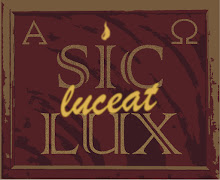When I was trying to understand the world through
psychological theories I came across certain teachings which spoke about
Narcissism.
Narcissism and Narcissist are common terms which people use
to describe evil traits/attitudes and selfish people. I don’t like their use
because I believe the way they are most commonly used implicitly denies the
truth of Christianity.
I was quite interested in Narcissism from a psychological
and artistic perspective for a while before I became a Christian and in some
respects I still am. There are many great poems and pictures around the myth of
Narcissus, and the story Echo and Narcissus itself is a good read.
I like to use the story in relation to vanity and identity too. The way I use this allegory, and probably many others do, fits into and builds on the truths of the Christian faith so does not deny the truth.
I think people who do not believe in God can never have a realistic understanding of evil, and that is in part what leads to a lot of disorder in the world.
I like to use the story in relation to vanity and identity too. The way I use this allegory, and probably many others do, fits into and builds on the truths of the Christian faith so does not deny the truth.
I think people who do not believe in God can never have a realistic understanding of evil, and that is in part what leads to a lot of disorder in the world.
My own understanding of Narcissism from a psychological perspective is not the same as that which I have come across personally when reading about psychology.
When Christians especially speak about Narcissism as though
it is an incurable personality fault, I tend to say that the Tragedy of
Narcissus, or Echo and Narcissus, is a Greek myth.
It reminds me of the Bible verse 2 Timothy, chapter 4,
verses 3-4:
“The time is sure to come when, far from being content with
sound teaching, people will be avid for the latest novelty and collect themselves
a whole series of teachers according to their own tastes; and then instead of
listening to the truth, they will turn to myths.”
I chose this translation from my CTS travel Bible because it
says instead of listening to the truth.
The fact that Narcissus is a myth is important because it is
that little fictional story which is the origin of the label, and the
connotations it has.
In my experience Christians often take on the modern ideas of
Narcissism to such an extent that it replaces the Christian understanding of
selfishness- that which involves the reality of sin and our fallen nature, or
inclination to do self-destructive things for vain reasons.
So, although I don’t think about this much now it is still an
interesting topic, even when looked at through a Christological lens. I have
spent so much time on it in the past I could probably do a thesis or book if I
had the credentials, but I don’t; however I also can’t do one blog post and do
the topic justice either, so I am going to do a few posts on Narcissism and
Christianity.
I will be sharing some art, poetry and referencing things
like Modernism and the seven deadly sins in order to reflect on this topic of
selfishness, or Narcissism; during that time I will look at my own pre-Christian
understanding of Narcissism relative to my understanding now, and reflect on that
as well as I can in relation to the teachings of Jesus Christ.
It is possible this topic would put me at odds with most
people who have inculcated a lot of the psychological mumbojumbo which is so
popular. Even many Christians will not like what I have to say, but I hope I am
able to make my point clearly enough that people will see where I am coming
from and how and why I feel the term has been misappropriated by a Godless
world.
A wrong label and understanding of people prevents real
solutions to evil; therefore I believe because the current, common use of the
term Narcissism is used in place of Christian truths we are prevented from real
solutions to evil, which can be better understood and therefore addressed with
a Christian perspective.
Watch your own face this space.
May God bless you and take each of us from pitiful puddles of self-love to the living water of Jesus Christ!



Meaningful
ReplyDelete